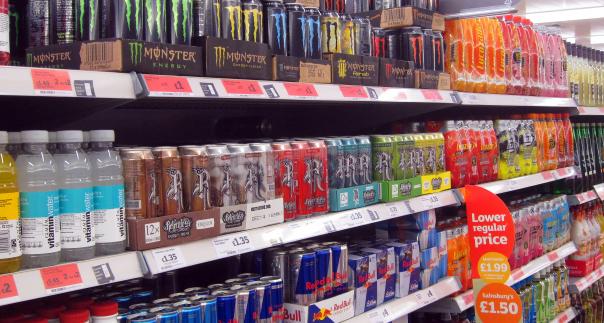Government proposes ban on sale of high-caffeine energy drinks to children

Around 100,000 children consume at least one high caffeine energy drink every day. There is evidence linking these drinks to harmful effects on children, including disrupted sleep, increased anxiety, poor concentration and reduced educational outcomes.
The proposal would make it illegal to sell high-caffeine energy drinks containing more than 150mg of caffeine per litre to anyone aged under 16 years across all retailers, including online, in shops, restaurants, cafes and vending machines. The proposals would not affect lower-caffeine soft drinks nor tea and coffee.
Many major retailers already voluntarily restrict sales, but research suggests some smaller convenience stores continue selling to children, highlighting the need for a consistent approach that protects children and is fairer for industry.
Health and Social Care Secretary Wes Streeting said: “How can we expect children to do well at school if they have the equivalent of four cans of cola in their system on a daily basis? Energy drinks might seem harmless, but the sleep, concentration and wellbeing of today’s kids are all being impacted, while high sugar versions damage their teeth and contribute to obesity.
“As part of our Plan for Change and shift from treatment to prevention, we’re acting on the concerns of parents and teachers and tackling the root causes of poor health and educational attainment head on. By preventing shops from selling these drinks to kids, we’re helping build the foundations for healthier and happier generations to come.”
The Government says these plans could prevent obesity in up to 40,000 children and deliver health benefits worth tens of millions of pounds. Research highlights that up to one third of children aged 13 to 16 years, and nearly a quarter of children aged 11 to 12 years consume one or more of these drinks each week.
Barbara Crowther, children's food campaign manager at Sustain, added: “High caffeine energy drinks already carry warning labels saying ‘not suitable for children’, so it’s absolutely right for the Government to limit them from being sold to children too.
“They are branded and marketed to appeal to young people through sports and influencers and far too easily purchased by children in shops, cafes and vending machines. Parents, teachers and health professionals have all called for this policy, so let’s get involved with the consultation and support children’s health.”
